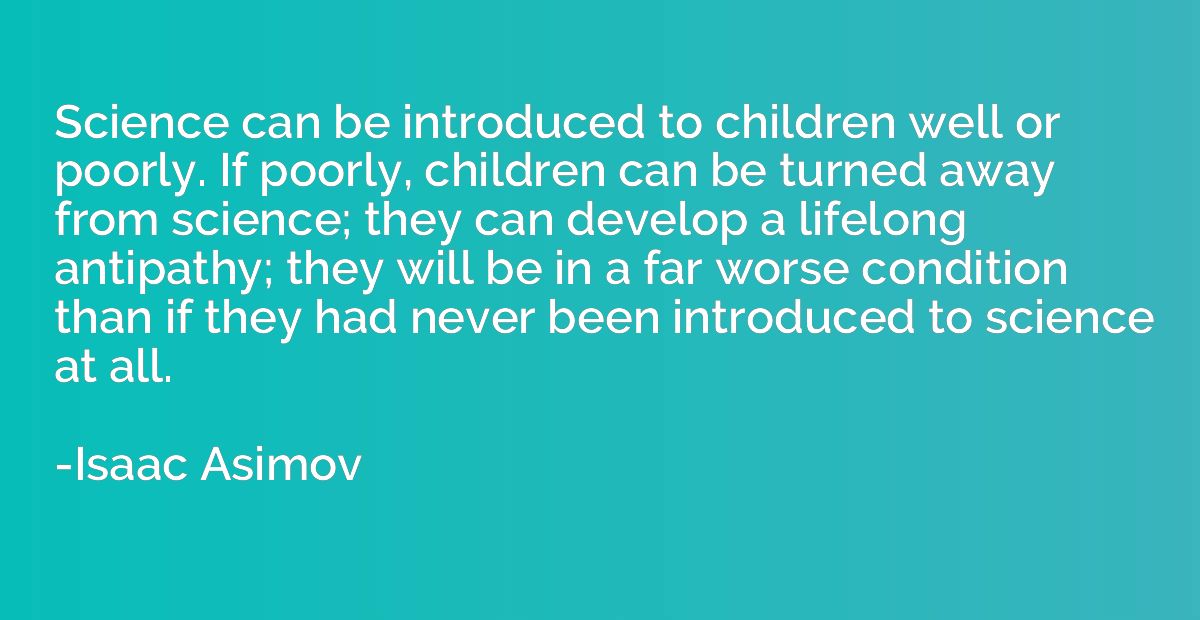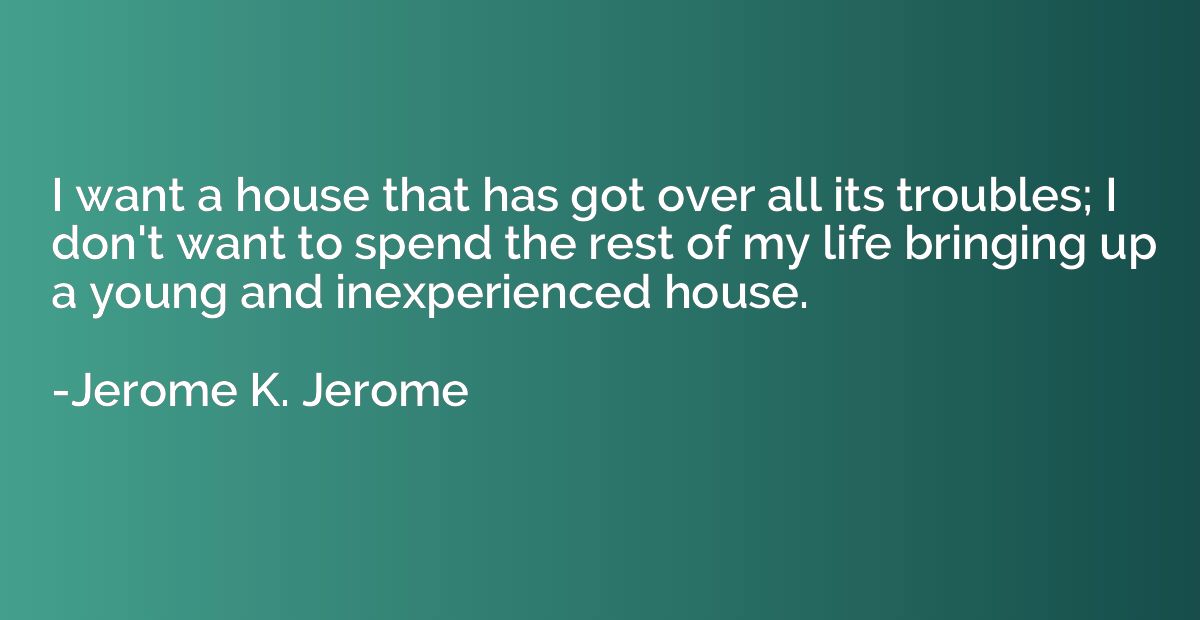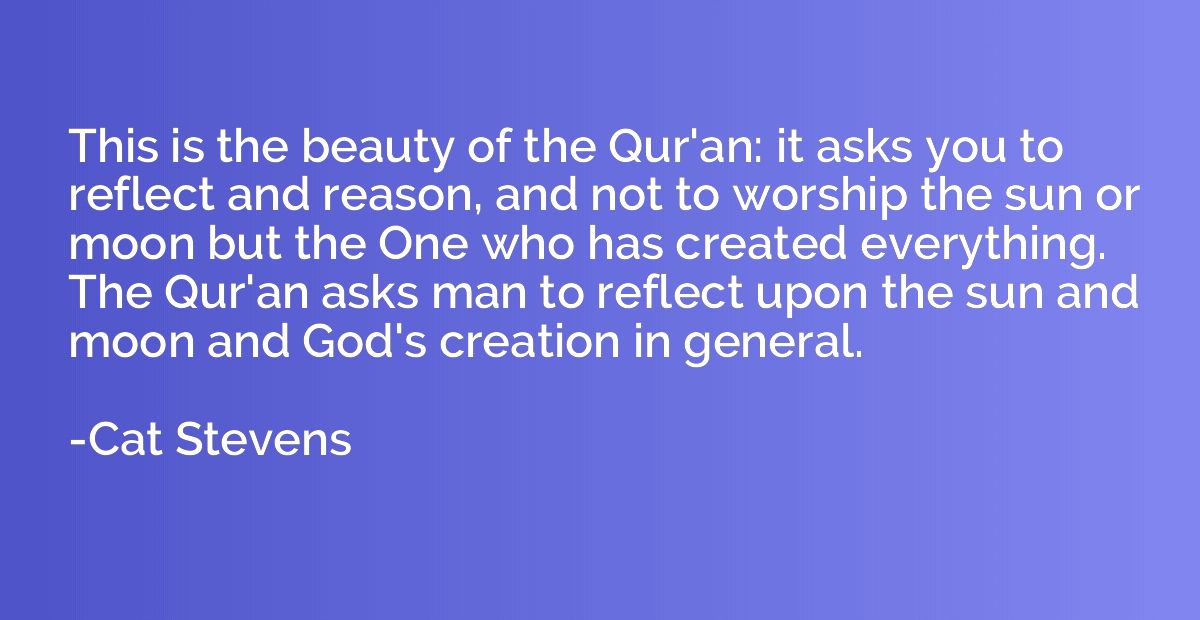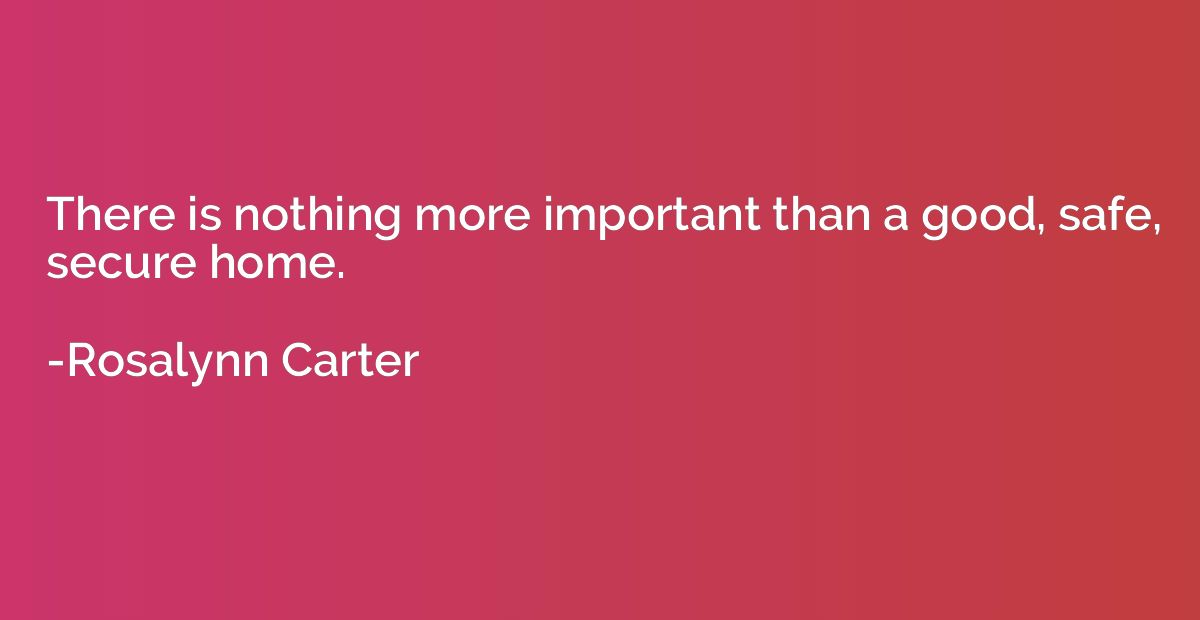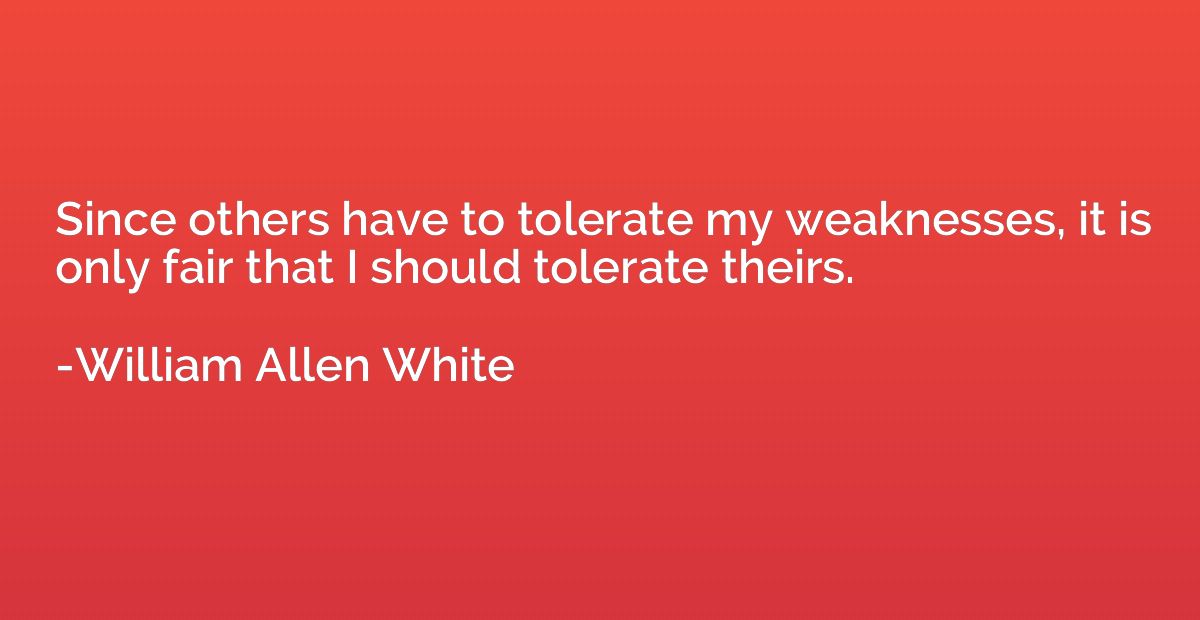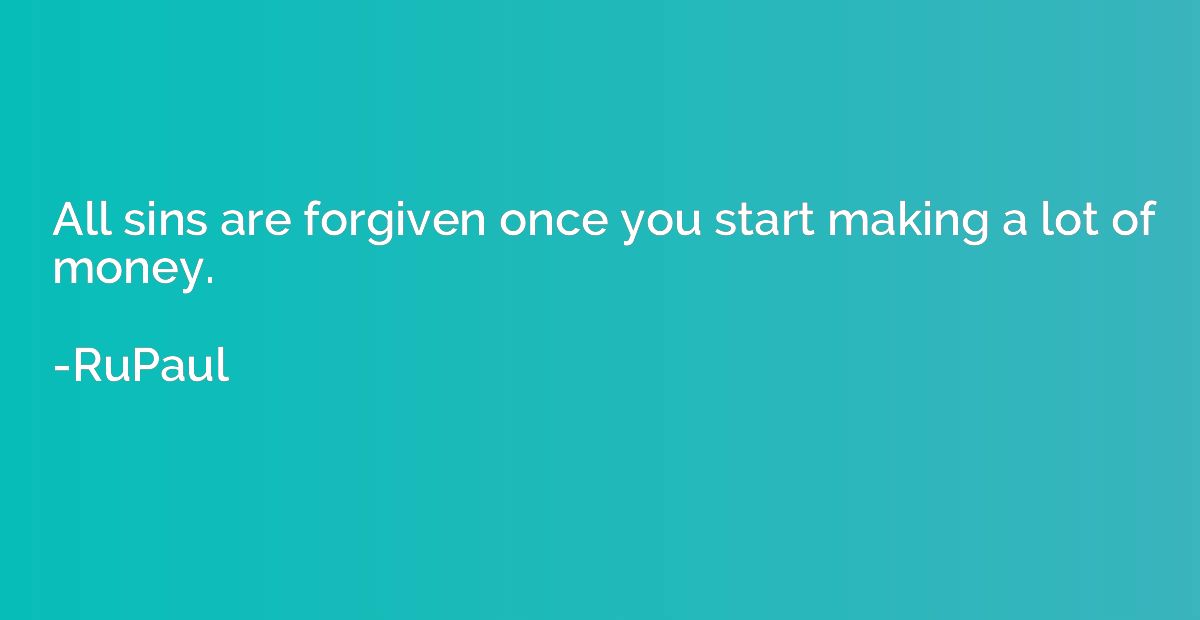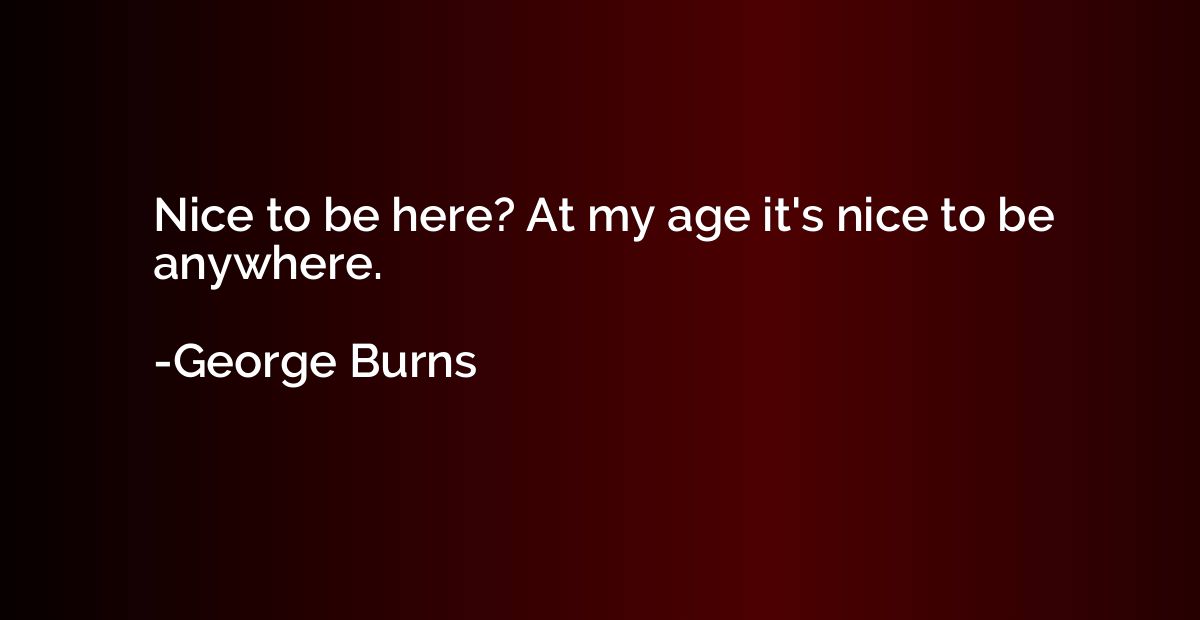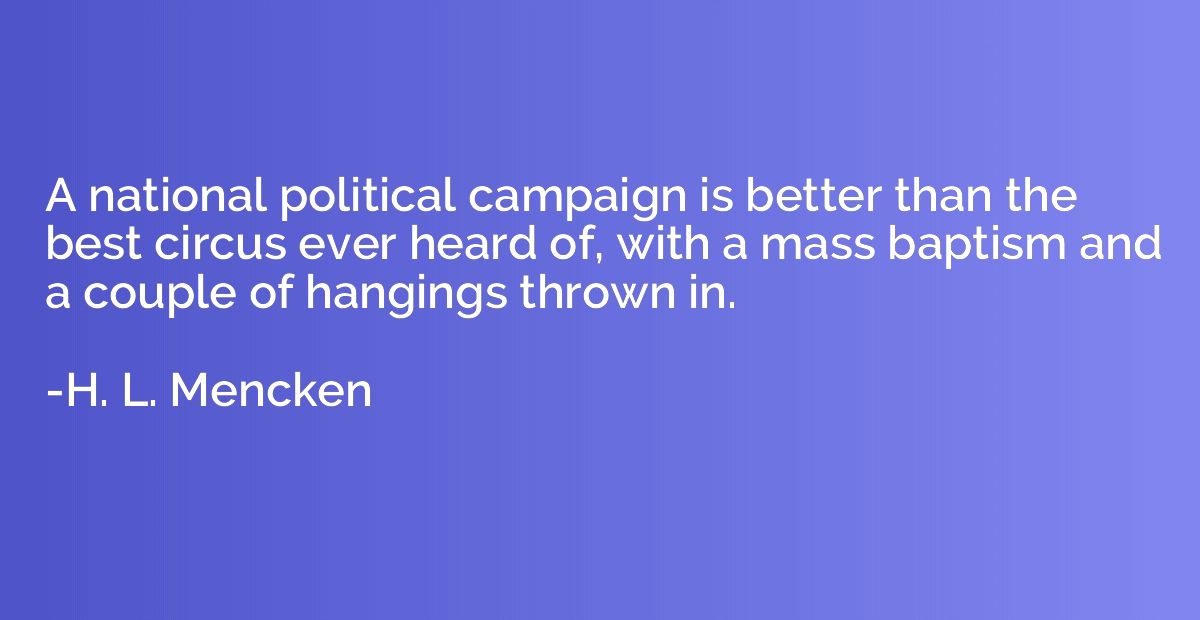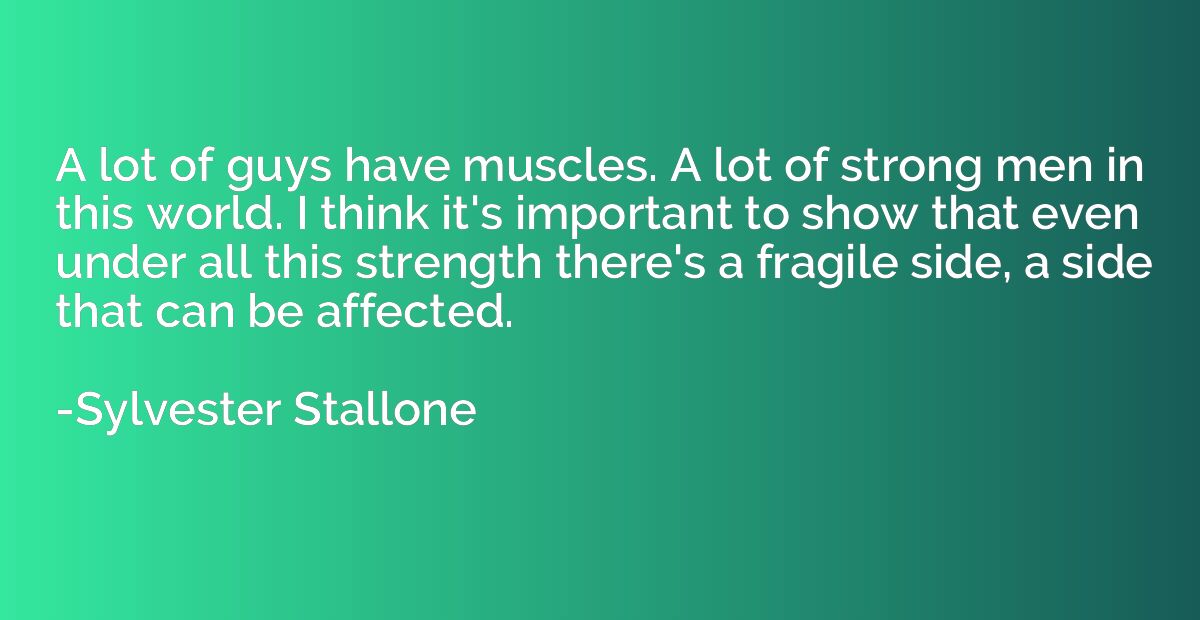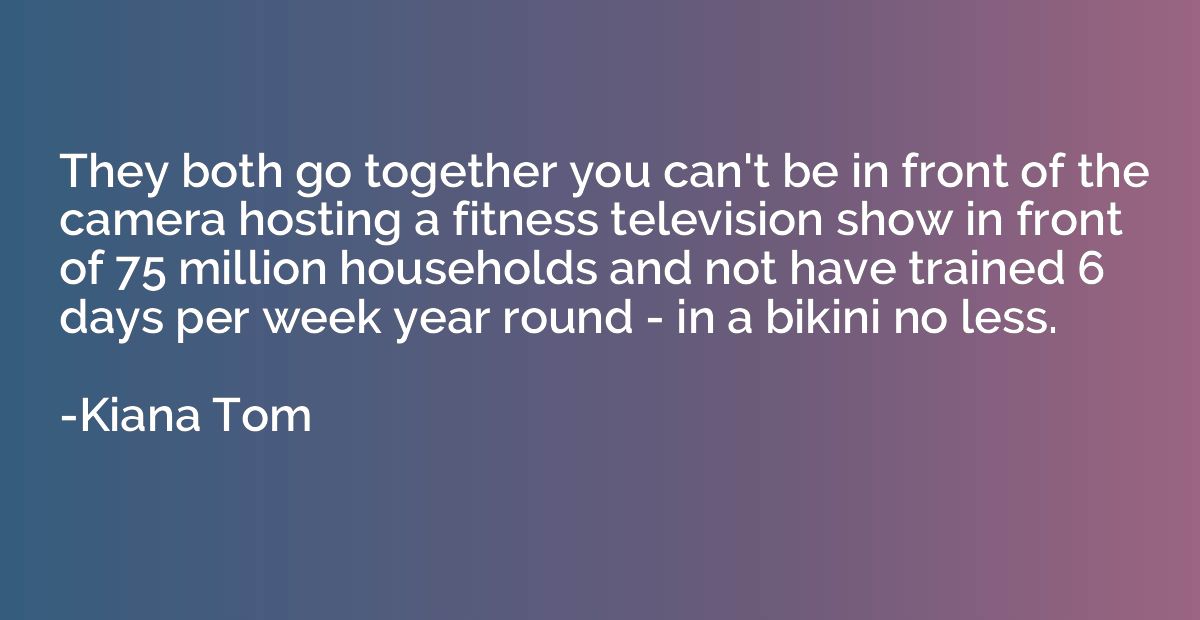Quote by Milan Kundera
Für Sabina bedeutet Leben Sehen. Das Sehen wird durch zwei Pole begrenzt: das grelle, blendende Licht und das absolute Dunkel. [] Extreme markieren Grenzen, hinter denen das Leben zu ende geht, und die Leidenschaft für Extreme, in der Kunst wie in der Politik, ist eine verschleierte Todessehnsucht.
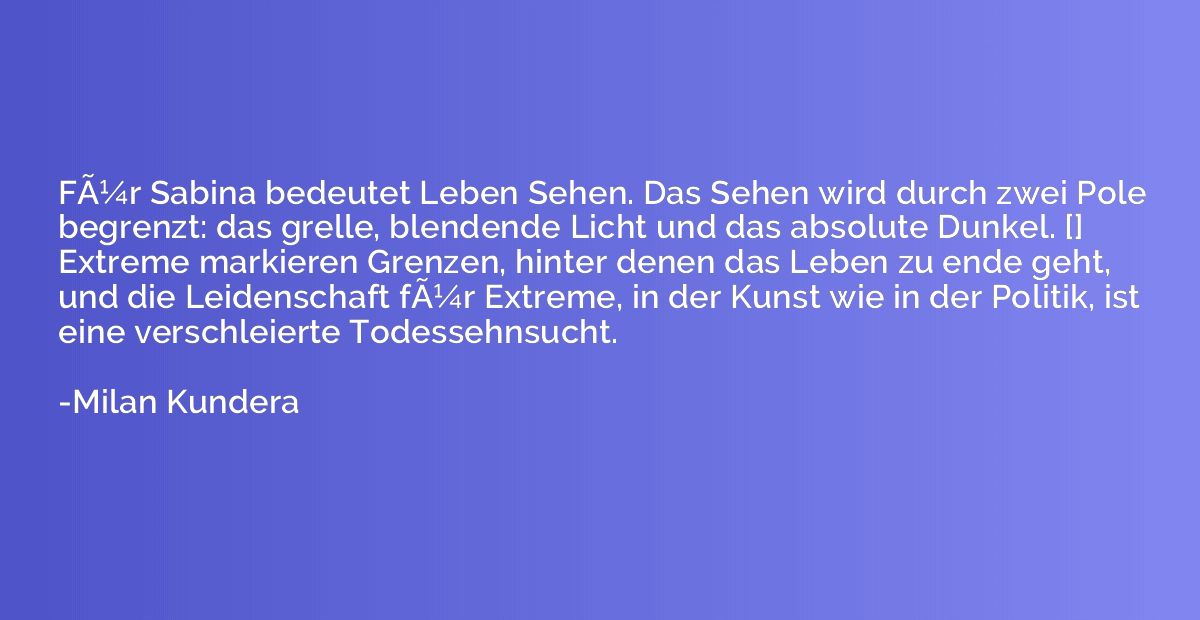
Summary
This quote highlights Sabina's belief that life is defined by the act of seeing. She emphasizes that seeing is limited by two extremes - the bright, blinding light and the absolute darkness. Sabina suggests that these extremes mark the boundaries beyond which life ceases to exist and argues that a passion for extremes, both in art and politics, is a hidden desire for death. In essence, Sabina suggests that true life lies in maintaining a balance between these extremes and embracing the complexity and shades of gray that exist between light and darkness.



